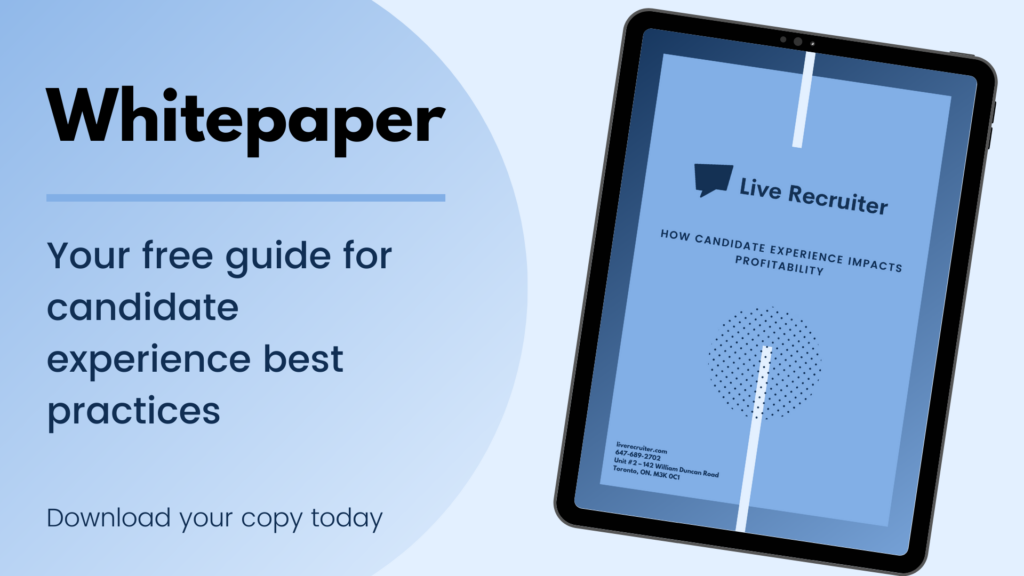Hiring for potential
Hiring for potential entails considering a candidate’s room to grow in the future and weighing this growth potential equally – or more so – than other factors, such as experience. Considering candidates’ growth potential is highly valuable to employers. This way, organizations can think long term about an applicant and a role and, with the right strategies, can even identify a rising star and retain them before their competitors get the chance to do so. However, recruiters have a hard enough time finding a good fit for their opening based on objective and measurable metrics (such as years of experience, education, certifications, etc) and evaluating where a candidate stands in the present. Assessing what kind of employee they can become in the future, while highly advantageous, is uniquely challenging.
Experience is overrated
Dr. John Sullivan, an internationally known HR thought-leader from Silicon Valley, states that direct work experience is overrated. Sullivan writes, “Perhaps the best example of success without ‘direct experience’ is when firms select CEOs, most of whom have never held the title before. You need to look no further than Mark Zuckerberg, Steve Jobs, and Bill Gates to find individuals who have been wildly successful without an ideal education or previous direct experience. Firms like Southwest Airlines, Ritz-Carlton, and Zappos have had tremendous success by using a non-credential based approach known as ‘hire for attitude and train for skill.’” A key priority among the Millennial workforce when it comes to careers is the pursuit of growth opportunities. This generation is flexible and willing to learn, actively seeking out opportunities and resources to continue their education. With that said, a candidate may be highly driven and motivated to continually improve their knowledge and skills, but not have sufficient relevant skills and experience to meet hiring managers’ expectations. When examining only what is seen on paper, recruiters miss out on a potential powerhouse that could greatly benefit their organization in the future.
The perks of hiring greener talent
In some situations, an apparent lack of relevant experience can be an asset in disguise. Workers that are new to a field often find fresh and innovative ways to tackle challenges and obstacles. Capable employees with transferable skills from other fields are typically more willing to take risks than their more seasoned counterparts. Their unconventional insights and perspectives can be major drivers of growth at an organization. When these employees stir the pot, this can lead to improved methodologies, practices, and strategies that grow the business and help it stay competitive.
It’s a proven fact that diverse organizations outperform their less diverse counterparts across industries. This is true both in a demographic sense and in terms of practical experiences and professional backgrounds. Diverse organizations are 45% likelier than their competitors to increase their market share. Further, diverse teams are 87% more effective at decision making than individuals.
Hiring greener talent is cheaper and easier than going after more experienced professionals. In a tight labour market defined by skills shortages, in-demand workers with a lot of experience under their belt seek the highest possible compensation that they can find. This places them out of reach for many smaller firms. Contrastingly, younger talent that is new to the job market or candidates that are looking to change directions with their careers are likely to accept a position at an organization that is still developing its brand. Moreover, greener talent generally stays at organizations longer than their more experienced colleagues. For instance, Millennials value opportunity, recognition, and contributing to the growth of their employer. When these needs are met, Millennial workers are highly loyal to their employers.

How to hire for potential
When hiring for potential, recruiters must look beyond the resumé and examine more subjective factors, such as the candidate’s attitude, motivation, and transferable skills.
Assess soft skills
If someone lacks the specific skills required for a job, recruiters should look to their talents and behaviours to find indicators that the candidate could develop those skills. For example, a candidate could be interviewing for a sales role, but lack direct experience in sales. A great salesperson is someone who is persistent, outgoing, and exceptional at relationship building. While many people can be taught to follow a sales process, these traits are innate and much harder to teach.
Evaluate trajectory
A holistic approach to a candidate’s breadth of experience can help recruiters determine where their career is going. Even if the candidate only has experience outside of the industry of a given role, their job history can provide valuable insights. For example, did they stay in the same role for multiple years or did they try to take on more responsibilities? Do they seek out opportunities to advance in their field? Even without direct experience, a candidate can prove to be a great fit by demonstrating their aspirational mindset and growth potential.
Ask scenario-based questions
In order to get the most meaningful insights during an interview, recruiters should go beyond experience-based questions and ask more investigative questions that would reveal how a candidate thinks. Namely, the interview should determine not only what the candidate can accomplish, but also why and how they are able to do it. Situational questions are a great way to isolate the reasoning behind a candidate’s actions and are not outcome and experience-focused. This is especially crucial if the candidate does not have a lot of direct experience in the industry that they are interviewing for. It also levels the playing field amongst candidates by going beyond their experience and testing their thinking. Here are a few examples of situational questions that allow recruiters to gage a candidate’s potential:
- What would you do if you made a mistake that no one else noticed?
- What would you do if confronted by an angry and dissatisfied customer?
- What would you do if you were asked to perform a task you’ve never done before?
Final takeaways
In brief, hiring for potential is strategically advantageous for companies but is particularly challenging for recruiters. Looking beyond a candidate’s resumé can be difficult and time consuming, especially in a remote or high volume hiring context. However, it is important for recruiters and hiring teams to note that by focusing too much on experience alone, they are missing out on a lot of potential great hires. Evaluating soft skills, career trajectory, and motivation are the key to not letting a great hire slip through the cracks.



